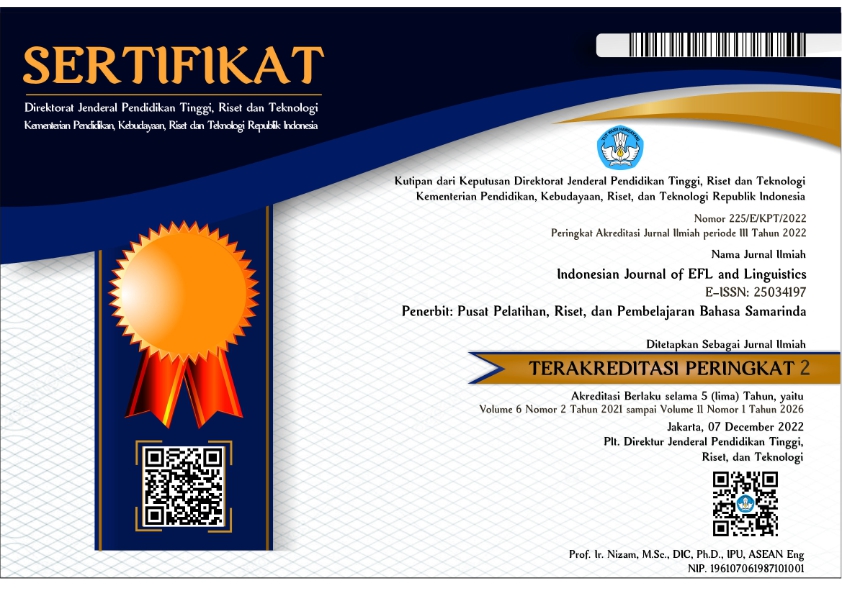Implementing Self-Regulated Learning in Improving EFL Students` Speaking Skills Integrated with Self-Confident Level in Islamic-Affiliated Schools
Abstract
One of the primary goals of education is to foster students’ autonomy and self-regulation in learning while recognizing their active roles in the learning process. In English language teaching, self-regulated learning (SRL) has been widely implemented as a strategy to achieve these goals. Speaking, as a skill, requires learners to quickly access and apply linguistic knowledge, often leading to challenges such as fluency issues. Furthermore, non-linguistic factors, particularly a lack of confidence, contribute significantly to the difficulties students face in developing speaking skills. This study investigates the effectiveness of SRL in teaching speaking skills, particularly in relation to students' self-confidence levels, in Islamic-affiliated schools. A mixed-methods approach using concurrent embedded design was employed to gather both quantitative and qualitative data. Quantitative data were analyzed statistically, while qualitative data were processed through data condensation, data display, and conclusion verification. The findings reveal that SRL strategies are particularly effective for students with higher levels of self-confidence, significantly improving their speaking abilities in the context of Islamic-affiliated schools. The study concludes that SRL can be a valuable approach in enhancing speaking skills, but its success is closely tied to students' confidence levels. These findings suggest that teachers should not only incorporate SRL strategies but also focus on building students’ self-confidence to maximize the effectiveness of speaking instruction in EFL contexts.
Copyright (c) 2025 Indonesian Journal of EFL and Linguistics

This work is licensed under a Creative Commons Attribution-NonCommercial-ShareAlike 4.0 International License.




